The powers being used to disrupt a terror group
- Published

A demonstrator at an al-Muhajiroun event in London in 2002 (file image)
Two members of the banned group al-Muhajiroun have lost an official review into counter terrorism measures used by the government to limit their activities. The BBC has investigated how the measures are being employed to disrupt the organisation's leadership.
At the High Court, listening to evidence about a notorious terrorist organisation, you don't expect to hear about Legoland.
But the efforts to control leading members of the banned group al-Muhajiroun (ALM), revealed during hearings at the Administrative Court, were occasionally surreal.
The hearing was told that one man's request to visit the theme park with his children was refused as he might have used the "trip to Legoland as cover" to meet other extremists.
Home Office officials, taking advice from MI5, concluded being at Legoland could have enabled the man to "engage in terrorism-related activity by promoting ALM's extremist ideology and encouraging others to engage in terrorism-related activity".
Details of the decision were contained in evidence seen by BBC News that reveals how Britain's security services are combating the leadership of ALM, a group which has been linked to multiple attacks and plots in the UK and abroad.
The three attackers that killed eight people at London Bridge in 2017 were led by a former ALM member, while the murder of five at Westminster Bridge earlier that year was by a man who had spent years associating with the group, and a member also killed two people at Fishmongers Hall in 2019.
'A radicalising network'
Seen as a radicalising network rather than a militant organisation, ALM was founded in the UK in 1996, spending years recruiting others to its extremist interpretation of Islam and seeking the establishment of a caliphate ruled by Sharia.
Intentionally provocative demonstrations and publicity stunts by the group, involving them praising the 9/11 attacks or heckling military funerals, once featured regularly in the media.
Police have said some 600 people have been linked to the organisation over the years.
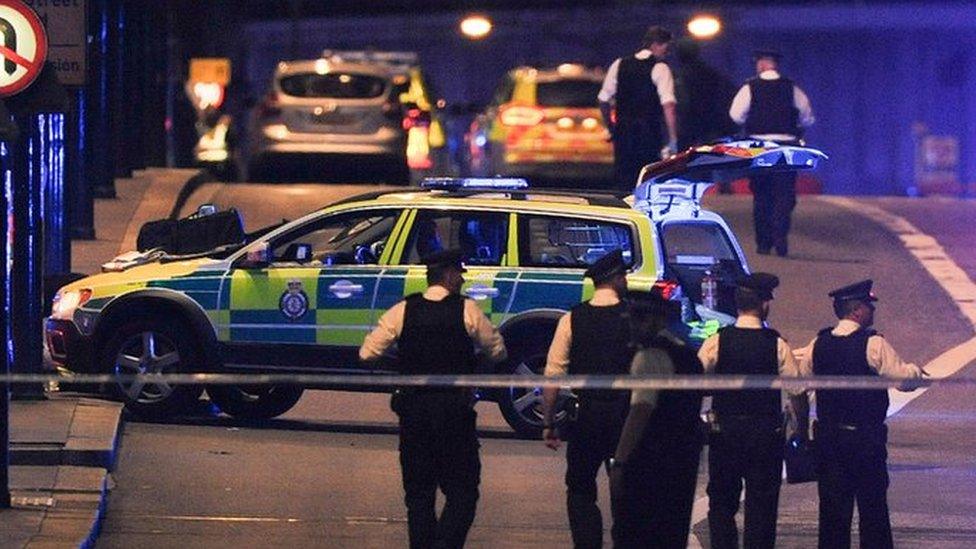
The ringleader of the London Bridge attackers had been a member of al-Muhajiroun
Despite being outlawed as a terrorist group under nine different names, several high court judges have found that it still exists, with specific individuals identified as senior figures.
However, no one has ever been charged with being a member.
After the series of attacks in the UK in 2017, a coordinated effort was ordered to disrupt ALM.
Terrorism prevention measures, which place strict limits on what a person can do, have emerged as a central tool being used to tackle leading radicalisers.

What are TPIMs?
Terrorism Prevention and Investigation Measures, known as TPIMs, allow the authorities to monitor and control people considered to be terrorists - but who are not facing criminal charges.
Subjects face measures such as wearing an electronic tag, curfews, relocation, bans on internet use, and limits on who they can meet and where they can go.
A TPIM can currently be imposed on a person for a maximum of two years.
Ministers are seeking to lower the standard of proof needed to impose a TPIM.

An MI5 assessment says that TPIMs placed on eight leading ALM members since 2016 have had a "disruptive but not fatal effect" on the group.
The analysis came during a high court review of measures placed on two of the men.
They were the first people to have been made TPIM subjects for a second time - after the government concluded they had engaged in fresh "terrorist related activity" in the months after their original measures automatically expired.
The BBC attended the review and obtained documents from it - in which MI5's current case against ALM was set out.
During the hearings, witnesses from MI5 and the Home Office detailed their case against the men and ALM itself, giving a rare insight into the strategy to target the group.
The men were not allowed in court at the same time, so appeared on different days. Only one attended in person, flanked by detectives at all times.
Some of the evidence was heard secretly in the absence of the men and their lawyers, with special advocates attending the closed sessions to represent their interests.

Radical preacher Omar Bakri Muhammad, who founded ALM, remains in contact with members
The government said both men had "re-engaged with ALM" after their TPIMs expired, organising meetings and travelling around the country, and one was in phone contact with the group's founder, Omar Bakri Mohammed, who is based in Lebanon.
The men's lawyers argued against the legality of the measures, such as checking in with police up to 12 times a week, which the government said was necessary to prevent them from having spare time to radicalise others.
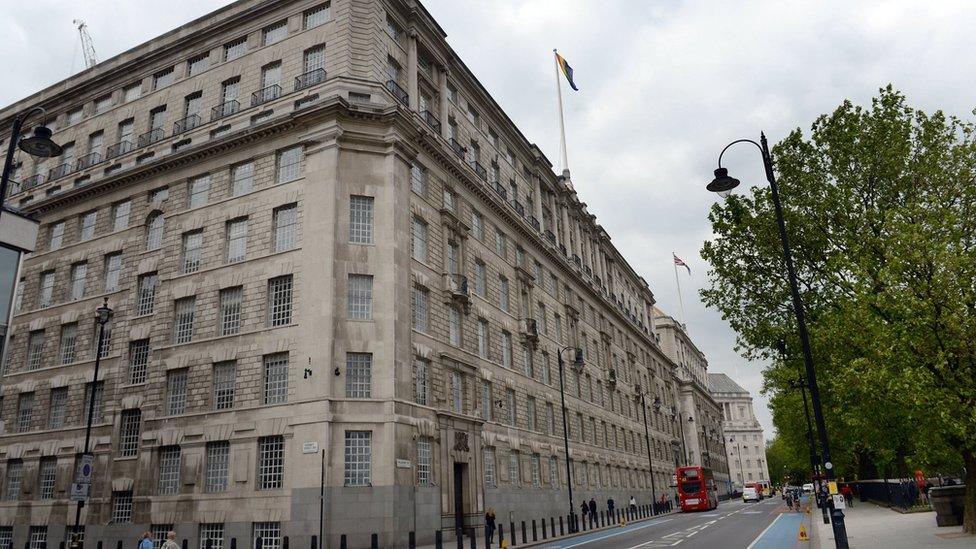
MI5, led from its headquarters in London, plays a central role in TPIM cases
The evidence also suggested the measures can have unintended consequences.
MI5's own case was that ALM ideology was spread to a new city when one of the men was forcibly moved there in 2016 as a result of his first TPIM.
This resulted in him being "particularly influential in the mindset" of two people who would later be arrested for terrorism offences, counsel for the home secretary said.
MI5's evidence said the man had made new associations with 10 people in the city, that he exerted an influence on them, and played a key role in their association with ALM.
Lawyers for the two men said that normal social meetings, after the expiry of TPIMs, should not be seen as suspicious and there was a risk of "looking at legitimate religious activity and seeing danger where there isn't any danger".
But the judge has now ruled against the pair, finding the TPIMs were necessary to stop them engaging in ALM activity.
Pizzas and 'girlfriends'
Everyone subjected to a TPIM is given legal anonymity and referred to using a cipher. If the measures are breached, the subject can be prosecuted and jailed.
Of the eight senior ALM members to have been placed under the measures in the past five years, some have served prison sentences for breaches, such as one who went to a nightclub with a woman he met in a pizza shop, and another who possessed an unauthorised phone that he used to chat with "girlfriends".
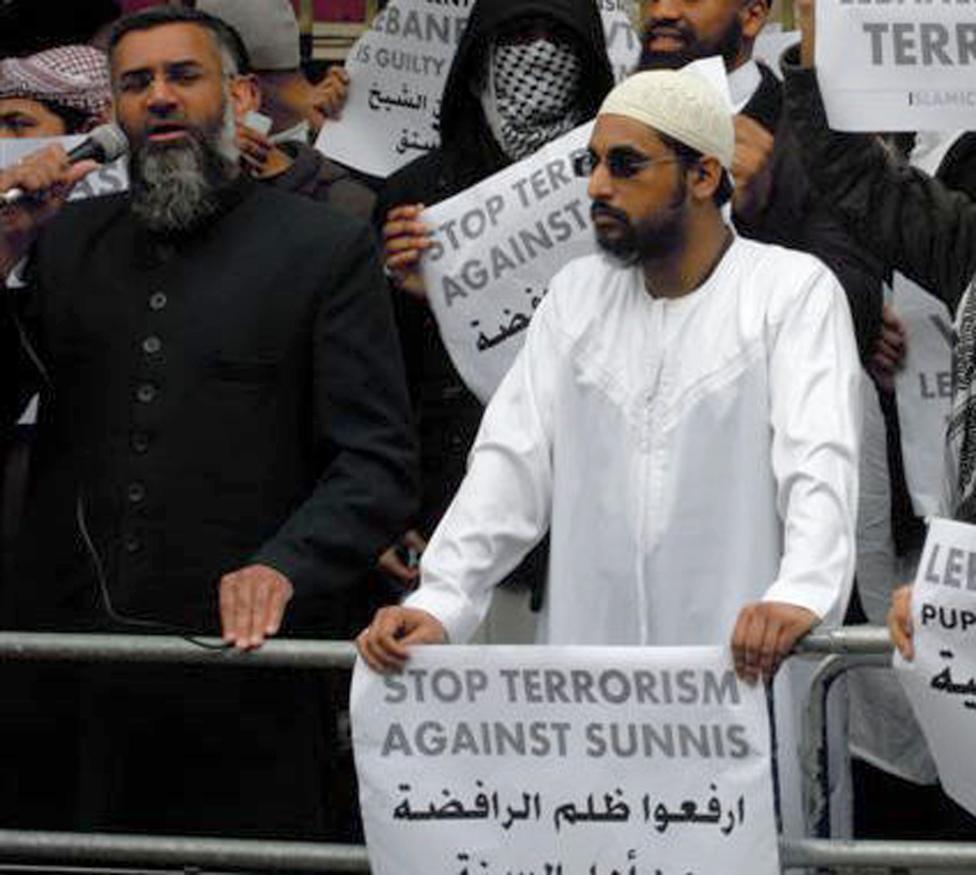
Leading ALM figures Anjem Choudary and Mohammed Mizanur Rahman were jailed in 2016
Leading ALM figures Anjem Choudary and Mohammed Mizanur Rahman had, instead, been the subject of a criminal prosecution for terrorism offences.
They were jailed in 2016 for inviting support for the Islamic State group. Both were automatically released from prison on licence two years later.
But the BBC can reveal Rahman was returned to prison in February last year when he breached his conditions.
The breach occurred in the days after an attack in Streatham, south London, which saw a recently released terrorist prisoner stab members of the public in the street.
Rahman was released by the Parole Board shortly before Christmas.
The strict licence conditions on Choudary and Rahman will expire in the summer.
Attack planners and radicalisers
Research by the BBC shows that TPIMs relating to ALM members make up a large proportion of all occasions when the powers have been used.
It reveals that 24 people have been made the subject of a TPIM in the decade since they were created in 2011, when they replaced the controversial Control Orders.
In addition to the eight senior ALM members, a further six people directly or indirectly linked to the group were the subject of earlier TPIMs, BBC research suggests.
Analysis of all 24 cases - each relating to an alleged Islamist extremist - shows a trend away from using the measures on people suspected or acquitted of planning attacks and towards using them on radicalisers, specifically ALM radicalisers.
The government is currently legislating to lower the standard of proof needed to impose a notice in the first place and remove the two-year time limit on each one, creating the prospect of enduring TPIMs, with people living under the measures for years.
Jonathan Hall QC, the independent reviewer of terrorism legislation, has expressed his concerns about the proposed changes while Amnesty International, which opposes the TPIM regime, has argued the proposed changes will "make what was already a deeply problematic system far more intrusive, while simultaneously removing some of the key safeguards".
In a statement, the Home Office said: "Terrorism Prevention and Investigation Measures are an essential part of the counter-terrorism toolkit and are used to restrict individuals' involvement in terrorism-related activity, including those who are known charismatic radicalisers.
"The Counter-Terrorism and Sentencing Bill includes changes to the TPIM regime following consultation with operational partners, including removing the current two-year time limit so that it can be renewed indefinitely if the risk to the public remains."
Related topics
- Published27 June 2017
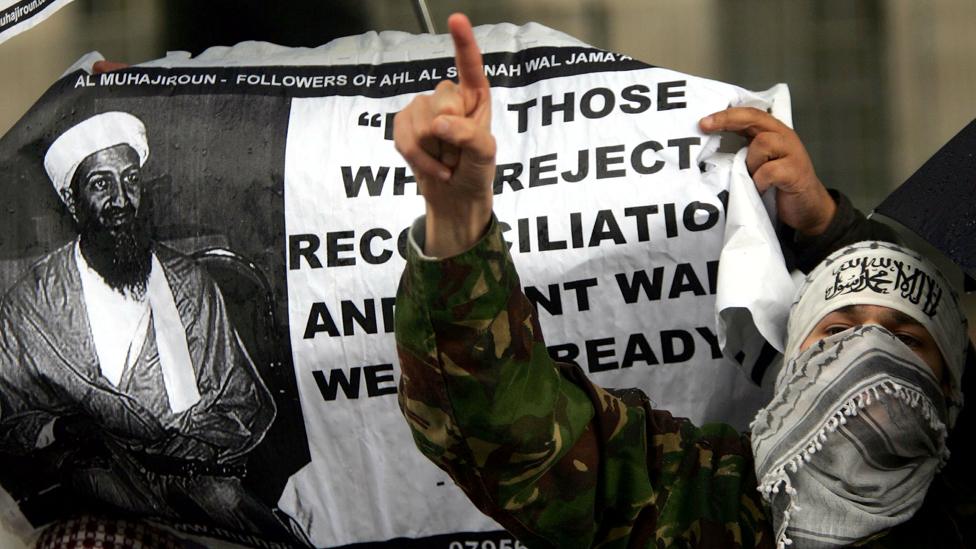
- Published7 October 2020
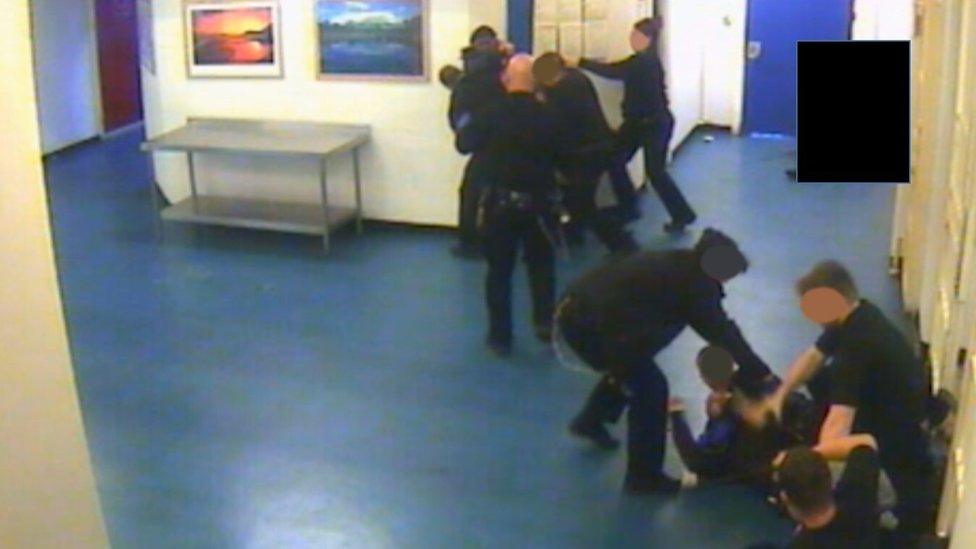
- Published25 January 2012
